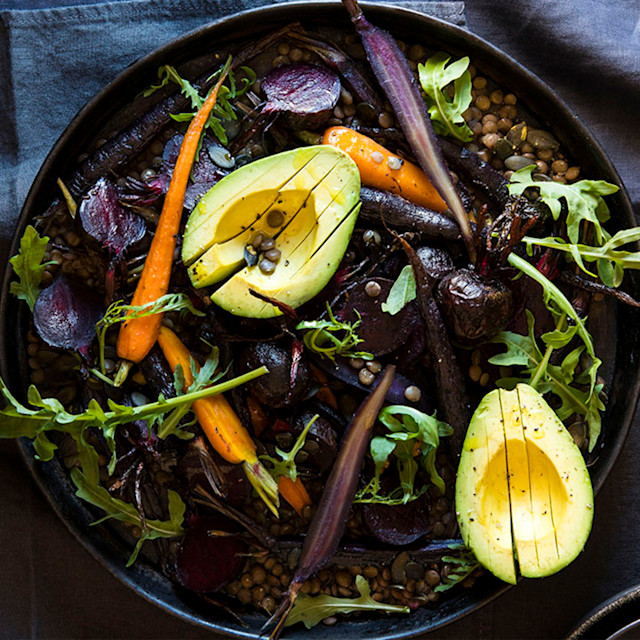Can what you eat actually help you run faster?
Fueling for performance is a science. Before you lace up and take on those 800-meter repeats, focus on nailing the basics first, then fine-tune your strategy to up your cadence.
Dietitian Julia Denison, MS, RD, LDN, says the first thing to know is researchers have yet to conduct robust studies that identify food or food groups that up your speed. “Specific foods are not going to have a direct effect on speed,” says Denison. While it’s a bummer that, say, peanut butter doesn’t make you log miles 20 percent faster, Denison explains that there’s still a proper way to fuel for a run. And, although it may not cut your mile time from 8:30 to 8 minutes, it’s still worth considering.
What to eat before a run for the best chance for speed
According to Denison, there are a few key nutrients that deserve a place on every runner’s plate, but the VIP is—without question—carbohydrates. “The main source of energy in runners, especially distance runners, is going to be carbohydrates,” she says. Think: almond butter toast, half a bagel with a tiny smear of cream cheese, or dry cereal.
One 2015 study published in the Journal of Applied Physiology tasked male competitive half-marathon racers with a challenging treadmill workout. The researchers found that carbohydrates contributed between 83 to 91 percent of the total energy used in the experiment, so remember that next time you’re thinking of skipping your morning pre-mileage oatmeal.
Apart from carbs, you’re also going to want a little bit of protein (like nut butter), which is important for both building and repairing muscles. A tiny bit of fat, which you’ll also get from nut butter, provides an additional source of energy and helps your body absorb nutrients. “Some specific nutrients that can be important for runners, especially female runners, are vitamin D, calcium, and iron,” adds Denison.
If you’re not sure how much to eat, the general rule of thumb is to try for 200 to 300 calories per hour of effort. But as with everything running, you’ll have to do some experimentation before you truly know how to feel your best out there.
What not to eat before a run
While the right pre-run snack can energize you to put your best foot forward, there are a few nutrition choices that can cause GI distress or make you feel sluggish as the miles roll on.
“Some foods that may cause GI distress, which may slow you down, include foods high in fiber and fat that are eaten right before running,” explains Denison. “It is important to remember that fiber and fats play an important role in your everyday nutrition, but eating these food items right before your run may cause some upset stomach or unwanted GI issues.”
So, unless you know you have a stomach of steel, it’s a good idea to opt out of fried food (like donuts) or high-fiber foods (like apples, berries, or avocados). Save those for after the run.
How soon to eat before a run
While every runner is unique, Denison generally recommends eating your high-carb snack half an hour before you hit the trails. That way, you’ll receive the peak amount of energy from that fuel.
“It is also important to begin the recovery process as soon after your run as possible. Try to eat a snack with protein and carbohydrates within 15 to 30 minutes after your run,” she says. You can try a protein shake and another half-bagel, avocado toast with an egg, or yogurt with granola. Whatever sounds good to you. And, of course, drink plenty of water. You’re already preparing for your next run.
